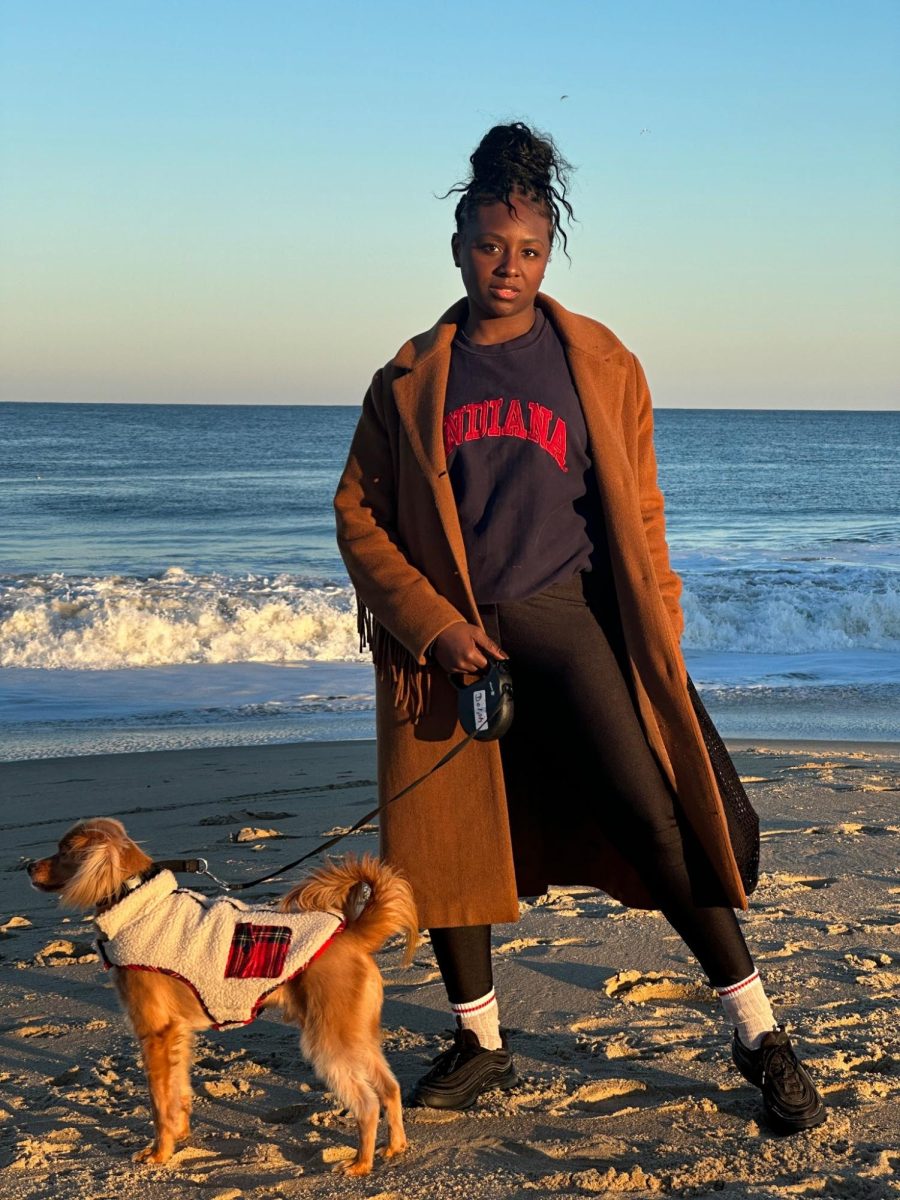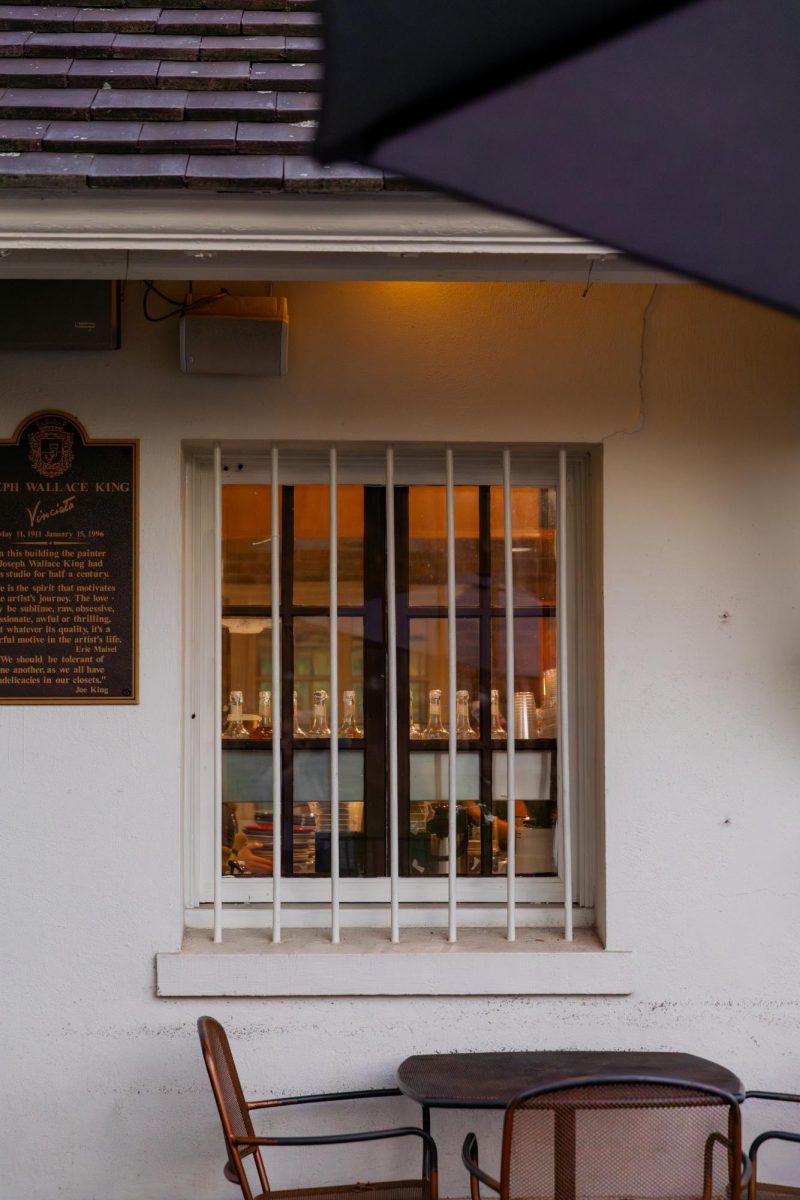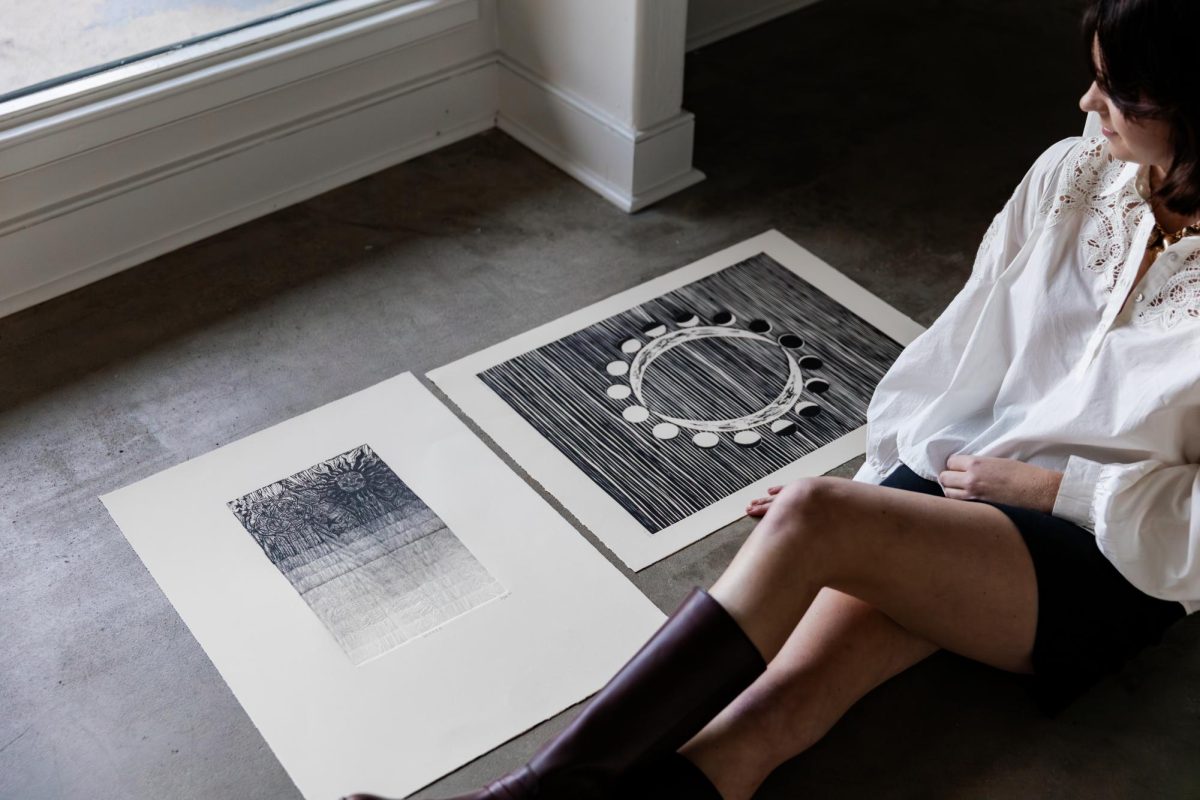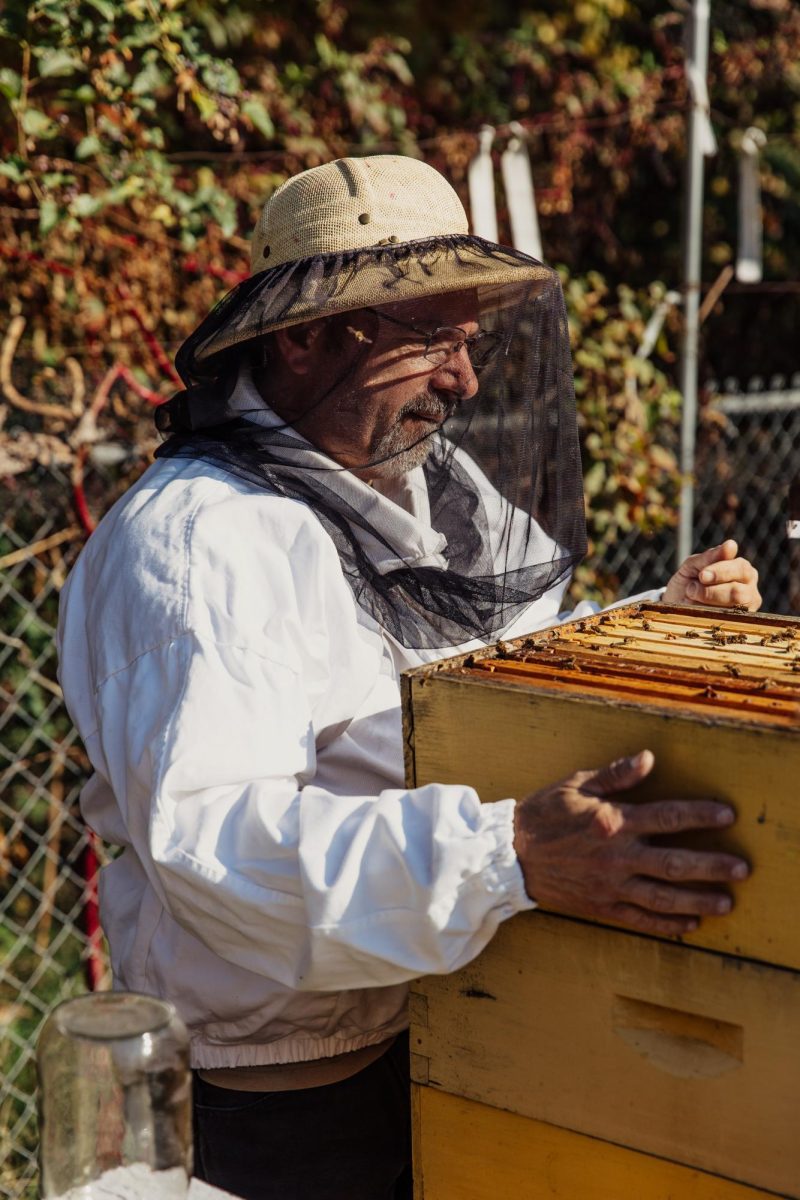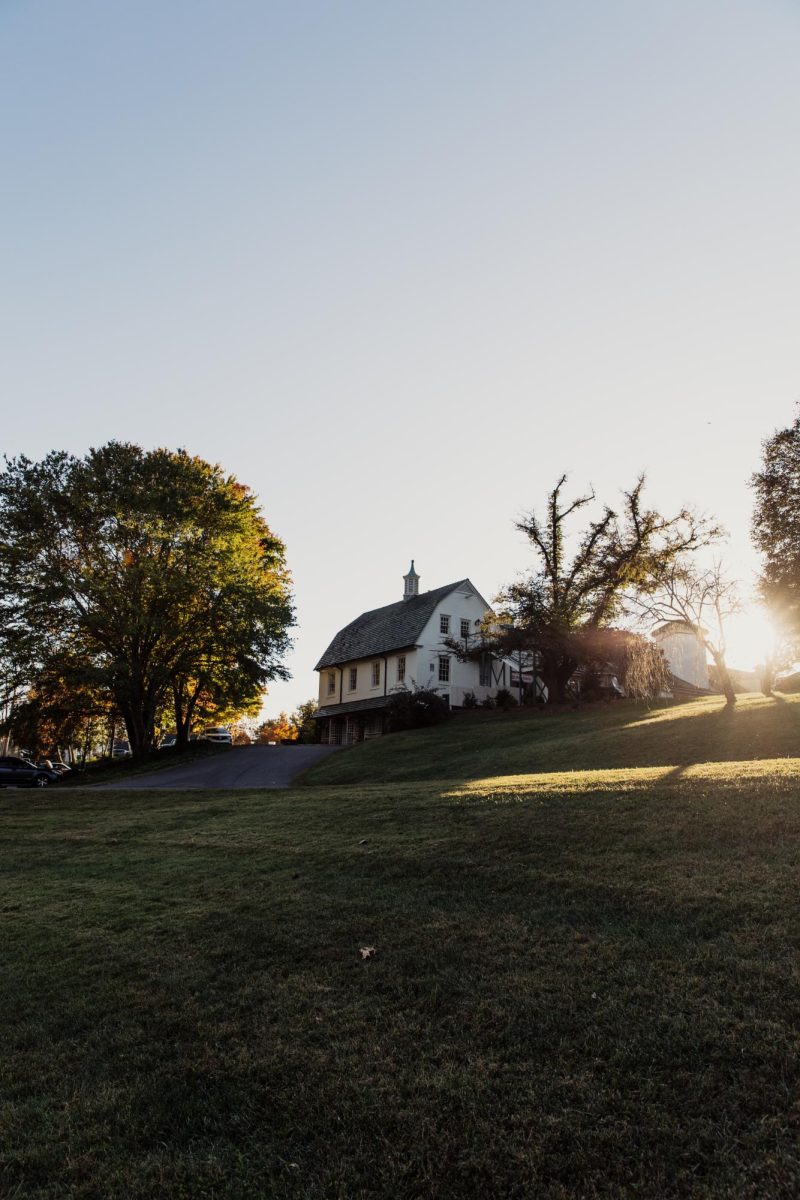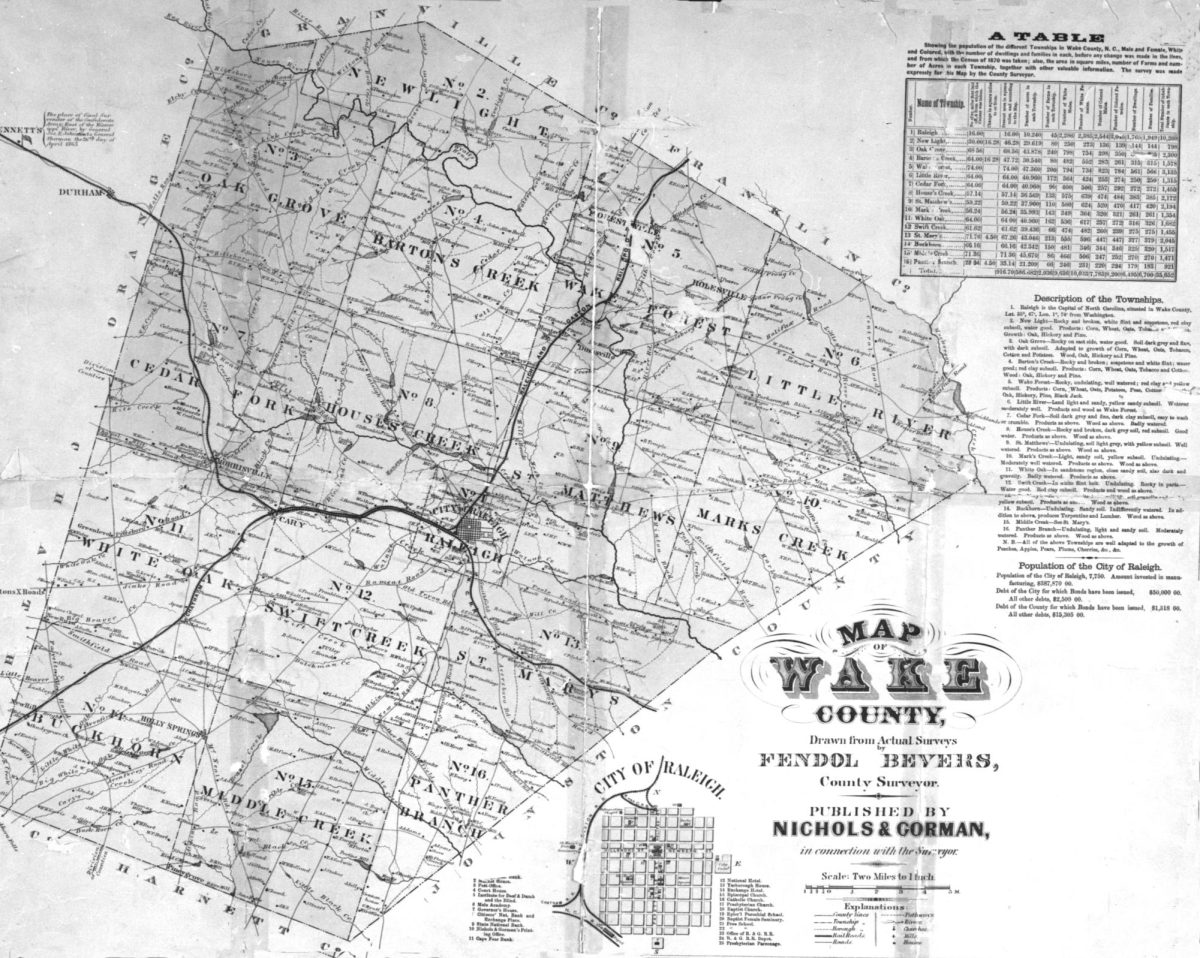Wake Forest alumna Mankaprr Conteh (‘17) is a staff writer at Rolling Stone, where she mostly covers hip-hop, R&B, African pop music, and occasionally comedians. After receiving a Bachelor’s degree in politics and journalism at Wake Forest, she attended the Craig Newmark Graduate School of Journalism at CUNY, which included a stint at Vogue. Before assuming her current role at Rolling Stone in 2021, she worked as a fellow, writer and administrative assistant at Pitchfork.
The following interview has been edited for brevity and clarity.
You currently work as a staff writer for Rolling Stone, specializing in the music industry. What made you fall in love with music? What about storytelling?
I fell in love with music on a couple of different levels. I’m an only child so I spent a lot of time by myself. When I was six years old, one of the first presents that I remember getting was a boombox. It had a radio tape player and a CD player on it. I put a butterfly sticker on the top. I just loved [it]. I loved reading through the booklets. I loved printing out lyrics, putting them in the shower and singing and memorizing songs. Music kept me company. Television-wise, I watched a lot of VH1 and music documentaries. I loved the decade series where they would talk about pop culture each year and so much of that landed in music. I love watching people explain their opinions about music.
Then storytelling, I like people. I love talking to people. People are so interesting and beautiful. I spend a lot of time in my head, and I like being able to connect with other people. It makes me feel less alone. I’ve also loved a good sentence for a long time. When you read a good sentence, or you hear adult lyrics in rap, just two bars and you’re like “Wow”. It’s cool that you put that together, and I wanted to do that too.
That’s a beautiful connection to your work. How did you discover that you could combine all of those things into a career in music journalism?
I was a politics major at Wake Forest. I came in for the journalism minor and wasn’t patient enough with it, ended up dropping it and focusing on things like international development and education. I took a politics class with Dr. Melissa Harris-Perry, and it was on Black liberation movements. At the time she had a show on MSNBC where she was doing just that — she was combining politics and music. She would talk about Beyoncé in these intricate Black feminist ways, and that is when I realized that I didn’t have to abandon this new goal of doing justice-oriented work. I could combine it with writing about music.
When Beyoncé’s “Lemonade” came out in April of 2016, [Harris-Perry] was an editor at Elle.com, and she was convening this round table of Black women to reflect on the film and the album. My best friend Camry Wilborn and I locked ourselves in the business school, we watched it on a projector and we just wrote. I was able to reflect on slavery, Hurricane Katrina and the African diaspora through this Beyoncé album. That is when I realized that I could write about music in an intentional, connected and political way.
Are there any other ways that Wake Forest helped you grow to get where you are today?
In every way. Melissa Harris-Perry also created a program that I got to be the test subject for called the Elle.com Scholars. I worked directly with Elle [Magazine] editors. We went to New York. We wrote and did podcasting. Some of those relationships helped me land an internship at Vogue. Dr. Sherri Williams was working in the Department of Communication at that time, she wrote my recommendation and helped me write a story for Elle.com about activists in Charlotte after a man was killed by the police, where I shadowed how their community was trying to orient themselves and take care of themselves while trying to do this very important work. I credit so much of my career in music journalism to connections and experiences that I had at Wake Forest.
Since Wake Forest is a predominantly white institution, how was your experience here socially and academically regarding race? Did that shape how you engage with journalism?
That’s one of the things that led me to decide that I was going to primarily write about Black people because being Black at Wake Forest was probably the most significant time I ever had to think about my race consciously every day. I grew up in an environment that was not as white or wealthy as Wake Forest. I didn’t see the type of money up close that I saw at Wake Forest, and I think that all those things stratified people. My salvation at Wake Forest was being in a close-knit Black community — a Black sorority. It just became such a central part of my identity. This was the peak of Black Lives Matter, so George Zimmerman’s trial for killing Trayvon Martin was rolling out while I was starting at Wake Forest. I think that Black people are dope, and I’m so grateful to be Black, and I want my work to sit in that.
What are your thoughts on the current future of the industry with all the layoffs occurring?
It’s a really tough time. A lot of my peers in the industry have been laid off recently. There are some people for whom music journalism is the only thing that they want to do. It’s wonderful to have people that have passion. For me, it made me think “Why do I write?” It comes back to people. There are so many ways that you can center people, storytelling and connection in your work, but I think that journalism is particularly important because it helps us understand what is happening around us. Especially now, the industry and the world have moved to a place where opinions trump fact. There needs to be a foundation of facts to build solid opinions on top of. [The problem with] the erosion of journalism, particularly music journalism, is that music journalists add context to the art. It’s not all about how good this album is. Where did this artist come from? What does this represent? What does this reflect about us? It’s scary to see the opportunities and places for that work to happen diminish.
How is your work and experience with Black artists helping advocate for broader equality outside the music industry?
Sometimes you’re writing about an artist like Fela Kuti whose legacy is directly in [questioning] bureaucratic structures and reflecting on them. I think more largely that it’s important for people to understand the psychological and emotional toll of being a person in the world. Some of those are particular to the Black experience. It’s useful to just see people as people. Being able to tell a story about how someone arrived at the art that they made and who they are just helps us all understand each other more and see each other as worthy of justice through the lens of fairness and equality.
How do you think the success of Black artists in the modern music industry relates to the push for equality for Black people, especially with people that you’ve worked with like Megan Thee Stallion, SZA, etc. and even people you’ve talked about in this interview like Kanye?
There are different layers, right? There’s the surface layer level of representation [that] matters. Seeing someone who looks like you, who has experienced things like you or who reflects things that you and your friends like or do can make you feel like certain things are possible. Take Megan Thee Stallion, for example. For her to be as successful as she is and still be a victim of gender-based violence and suffer under the psychological burden of all that is impactful. It’s a microcosm of the types of gender-based violence and intimate violence that happen all the time everywhere. She is brave enough to talk about it and advocate for herself over and over again. It’s impactful. That is important for survivors and potential allies. If she didn’t reach the level of success that she did, her story would also not reach as many people as it did.
Are there any artists who have shaped your understanding of music journalism, music in general or being Black in the industry?
I wrote Janelle Monaé’s cover for Rolling Stone in June of last year, and I think about this thing that she said all the time. Her album was called “The Age of Pleasure.” It was Grammy nominated, and she was in the process of getting ready to roll it out while we were talking. She had reoriented her life around pleasure. She would have meetings with her team as she runs the label, and if things would get tense or testy or anxious, she would ask: Are we living in pleasure? That ethos of pleasure. That could sound potentially dismissive, but I think it’s radical to reimagine your life and think “I would rather it be this way, and I will make it so.” That was a formative experience for me.
I’ve researched Janelle Monaé as well. Her ability to talk about certain things like Black futurism within her art in such a digestible way for the audience to understand it — like cyber-based stuff — was impactful for me.
She was able to engage in talking about Black futurism and different ideas of Black futurity that are not talked about in music because I think a lot of people have this preconceived notion about Black music. Black rap is seen as vulgar or only about certain topics, and she’s able to broaden that scope beautifully. I like “The Age of Pleasure,” as she leaned into more vulgarity and sexuality. This is also an important part of us. This has always been a part of me. One of the reasons why I got into music journalism is that there is a time for fighting, and we all must try, but there’s also a time for joy and pleasure. I like how they balance all of that in their work.
How does your experience as a Black woman in the journalism industry relate to the things you’ve seen with artists and shape your experience within the professional world?
So much of my Black womanhood has to do with my Africanness. Being able to see African music rising is important. We have artists like Ayra Starr and Amaarae becoming pop stars. Being able to connect and see them more intimately from my vantage point has been beautiful. Much of my studies at Wake Forest revolved around feminism and Black feminism, going back to why I do this. It makes you feel so much more connected when you can understand someone from their vantage point, and hear who they are and what they’re going through in their music. For example, I wrote this 21 Savage cover, and he’s not a woman, but he was talking about women sexually based on heteronormative ideas in a way that I was able to challenge. Of course in a respectful way, but the album “Her Loss” was misogynistic. It was difficult as a Black woman music journalist, to both hold the validity of that work and also concerns around that work and then engage with the artist. Sometimes it’s not even about what women are saying, it’s about being a woman and having a woman’s perspective, and inserting my perspective as a woman on what men are saying in music too.
What do you hope to accomplish in the next few years?
A lot of my goals are not necessarily about being a concrete professional. I think it’s more so in the vein of Janelle Monaé — what kind of life do I want to live? My goals are to work in environments that feel communal, different from work environments that are about more than the work than you as a person. I’d like to continue to facilitate that wherever I go.
Correction 6/21: This article has been updated to correct a few spelling and transcription-related grammatical errors.


